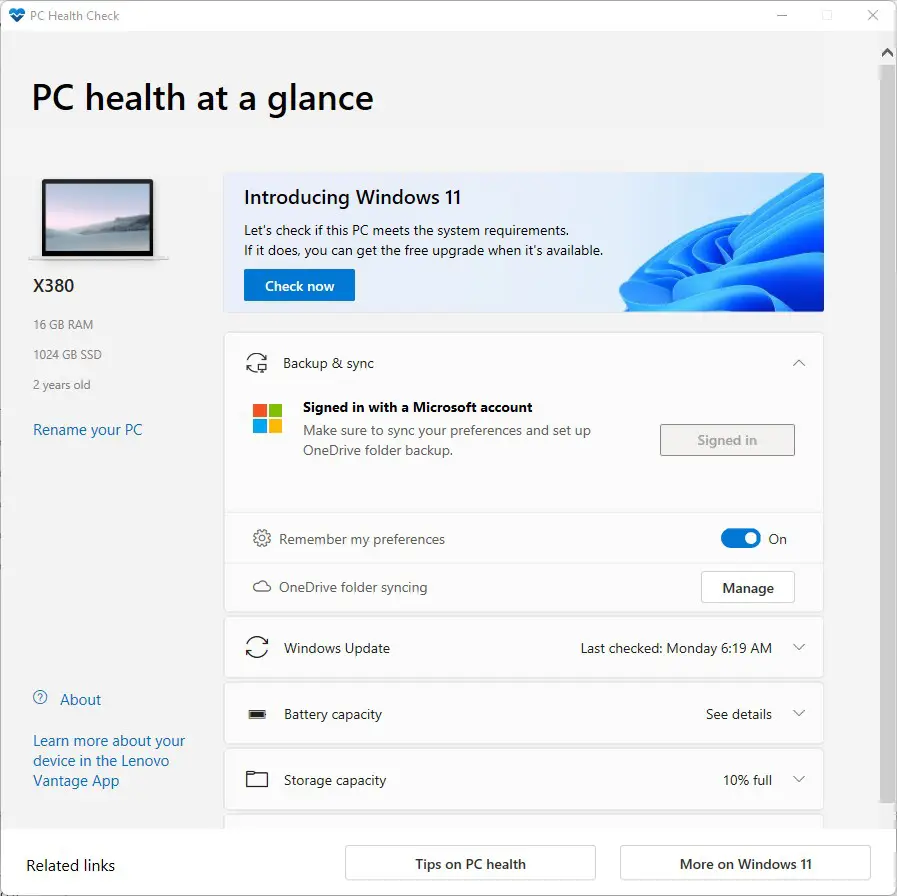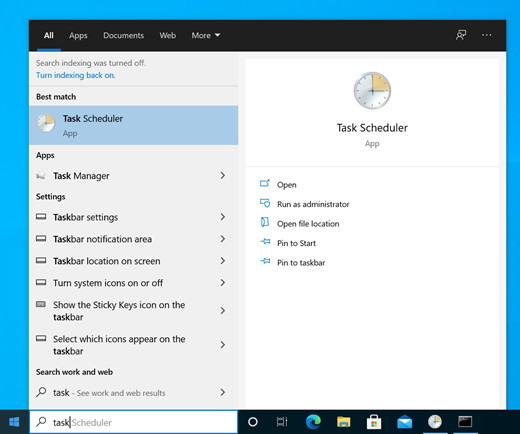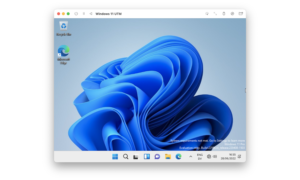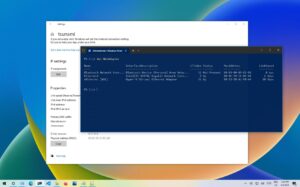To check if your PC is eligible for Windows 11, use the PC Health Check tool from the Microsoft website, which will analyze your system and provide eligibility status. Upgrading to Windows 11 can bring improved performance and new features.
However, before proceeding with the upgrade, it’s essential to ensure that your PC meets the minimum system requirements. Microsoft offers the PC Health Check tool to assess compatibility. By using this tool, you can determine if your current hardware and software configuration meets the criteria for Windows 11.
Understanding your PC’s eligibility for the upgrade will enable you to make an informed decision about whether to proceed with the installation of the new operating system. It’s important to confirm compatibility to prevent any potential issues during the upgrade process.
Why Should You Check Your Pc’s Eligibility?
Why should you check your PC’s eligibility for Windows 11? Checking your PC’s eligibility is crucial to ensure a smooth transition to the new operating system. It helps in determining if your device meets the necessary requirements, avoiding potential compatibility issues, and maximizing the benefits of Windows 11.
Compatibility Requirements
Windows 11 has specific compatibility requirements that your PC must meet to ensure a seamless upgrade. These include processor compatibility, RAM, storage, and TPM (Trusted Platform Module) version 2.0. Checking the compatibility of your PC is essential to identify any potential obstacles that may arise during the installation process.
Benefits Of Upgrading To Windows 11
Upgrading to Windows 11 offers numerous benefits, including enhanced security features, improved multitasking capabilities, and a modernized user interface. Additionally, it provides access to the Microsoft Store with a wider variety of apps and a more seamless integration with other Microsoft services.

Credit: www.computerworld.com
How To Check If Your Pc Is Eligible For Windows 11
Wondering if your PC can handle the new Windows 11 operating system? It’s important to check if your current hardware meets the requirements for the upgrade. In this post, we’ll guide you through the process of determining your computer’s eligibility for Windows 11.
System Requirements
Before checking if your PC is eligible for Windows 11, it’s crucial to understand its system requirements. Windows 11 demands a modern processor, sufficient RAM, ample storage space, and a DirectX 12 compatible graphics card. It also requires a secure boot capable of TPM 2.0, UEFI firmware, and specific display settings.
Using The Pc Health Check Tool
Microsoft offers the PC Health Check tool to help users determine if their PC can run Windows 11. This handy application performs a quick scan of your system to verify its compatibility. Follow the steps below to check your PC’s eligibility:
- Download the PC Health Check tool from Microsoft’s official website.
- Run the downloaded file and proceed with the installation process.
- Once installed, open the app and click on the “Check now” button.
- Allow the tool to scan your PC, and it will provide a report detailing the compatibility status.
What To Do If Your Pc Is Not Compatible
If you find out that your PC is not compatible with Windows 11, don’t worry. There are still options available for you to consider. Below, we’ll explore some upgrade options for Windows 10 users as well as what to consider if you’re thinking of purchasing a new PC.
Upgrade Options For Windows 10 Users
If you are currently using Windows 10 on your PC, there are a few upgrades you can consider to make your system compatible with Windows 11:
- Check for Windows updates: Make sure your Windows 10 is up to date by installing any pending updates.
- Hardware upgrades: Depending on the specific requirements of Windows 11, you may need to upgrade certain components of your PC, such as the processor, RAM, or storage. Consult with a professional to determine which upgrades are necessary and compatible.
- Check for OEM support: Some Original Equipment Manufacturer (OEM) providers might offer compatibility updates for their devices. Visit the manufacturer’s website to see if any updates are available for your PC.
Considering A New Pc
If your current PC is not compatible with Windows 11 or if you’re simply looking for a fresh start, here are a few factors to consider when purchasing a new PC:
- Processor compatibility: Look for PCs that have the latest generation processors, as Windows 11 requires certain specifications in terms of processing power.
- System memory: Ensure that the new PC has enough RAM to meet the requirements of Windows 11, as a higher amount of RAM is generally recommended for optimal performance.
- Storage capacity: Windows 11 requires a minimum amount of storage space. Consider purchasing a PC with ample storage capacity to avoid any potential issues.
- Graphics capabilities: If you’re into gaming or graphic-intensive tasks, make sure the new PC has a dedicated graphics card that meets the requirements for Windows 11.
- Price and budget: Determine your budget and search for PCs that offer the best value for your money. Consider the features and specifications that are essential for your needs.
By exploring these upgrade options and considering a new PC, you can find a solution that allows you to install and enjoy Windows 11 without compatibility issues. Remember to make informed decisions based on your specific requirements and budget.

Credit: support.microsoft.com
Preparing Your Pc For The Upgrade
Is your PC eligible for the Windows 11 upgrade? Before diving into the exciting world of new features and improved performance, it’s crucial to prepare your PC for the upgrade to ensure a smooth and hassle-free transition. Follow these essential steps to get your PC ready for the Windows 11 upgrade.
Backing Up Your Data
To avoid any potential data loss during the upgrade process, it’s highly recommended to back up your important files and documents. This ensures that even if something goes wrong during the upgrade, you’ll still have a copy of all your crucial data. Backing up is easy and can be done through a variety of methods:
- Copy your files to an external hard drive or USB flash drive;
- Use cloud storage services like Google Drive, Dropbox, or OneDrive;
- Utilize backup software to create a system image or clone your entire hard drive.
By taking a few minutes to back up your data, you can have peace of mind knowing that your important files are safe and secure before proceeding with the Windows 11 upgrade.
Updating Drivers And Software
To ensure optimal performance and compatibility with Windows 11, it’s crucial to update your drivers and software. Outdated drivers or incompatible software can cause various issues during and after the upgrade, such as system crashes or non-functioning hardware. Here’s how you can update them:
- Visit the official website of your PC’s manufacturer to download and install the latest drivers for your hardware components;
- Use device management software to automatically detect and update outdated drivers;
- Check for software updates within each application or use system utilities like Windows Update for automatic updates.
Keep in mind that updating drivers and software can significantly improve your PC’s performance and compatibility with Windows 11, making the upgrade process much smoother and enjoyable.
Now that you have successfully backed up your data and updated your drivers and software, you are ready to proceed with the Windows 11 upgrade. Follow the official upgrade steps provided by Microsoft to enjoy the latest features and advancements that Windows 11 has to offer. Happy upgrading!
Tips For A Successful Windows 11 Upgrade
Upgrading to Windows 11 can significantly enhance your computer’s performance and security. However, before making the leap, it is essential to ensure that your PC is eligible for the upgrade. In this article, we will provide you with some helpful tips to ensure a successful Windows 11 upgrade.
Clean Up Your Pc
Before upgrading to Windows 11, it’s important to clean up your PC to optimize its performance and ensure a smooth transition. Here are a few steps you can follow:
- Remove unnecessary files and programs to free up disk space.
- Run a malware scan to eliminate any potential threats.
- Update your current Windows version and installed applications to the latest versions.
- Disable any unnecessary startup programs to improve boot time.
Cleaning up your PC will not only prepare it for the Windows 11 upgrade but also improve its overall efficiency.
Ensure A Stable Internet Connection
Having a stable internet connection is crucial when it comes to upgrading to Windows 11. A reliable connection ensures that you can download and install the necessary files without interruptions. Here are some tips to ensure a stable internet connection:
- Connect your PC directly to the modem or router using an Ethernet cable, if possible, for a more stable connection.
- Close any unnecessary applications or browser tabs that might be consuming bandwidth.
- Consider temporarily disabling any data-hungry devices on your network, such as smart TVs or gaming consoles.
- Check your internet speed using an online speed test tool to ensure it meets the recommended requirements for the Windows 11 upgrade.
By following these tips, you can ensure a reliable internet connection during the Windows 11 upgrade process, minimizing the chances of any disruptions or errors.

Credit: techcommunity.microsoft.com
Frequently Asked Questions On Check If Pc Is Eligible For Windows 11
Is My Pc Eligible For Windows 11?
Yes, to check if your PC is eligible for Windows 11, you can use the PC Health Check tool provided by Microsoft. This tool will analyze your hardware components and let you know if they meet the minimum requirements for Windows 11.
What Are The Minimum Requirements For Windows 11?
The minimum requirements for Windows 11 include a compatible 64-bit processor, at least 4GB of RAM, and 64GB of storage. Additionally, your PC needs to have a DirectX 12 compatible graphics card, a display with at least 720p resolution, and a secure boot feature.
How Can I Upgrade My Pc To Windows 11?
If your PC is eligible for Windows 11, you can upgrade it by going to the Windows Update settings. If the update is available, you will see an option to start the upgrade process. Follow the on-screen instructions and your PC will be upgraded to Windows 11.
Conclusion
To sum up, determining if your PC is eligible for Windows 11 is essential for a seamless upgrade. By following the steps outlined in this blog post, you can easily check the compatibility of your device. Remember to review the system requirements, use the PC Health Check app, and keep your system updated.
By doing so, you can ensure a smooth transition to the new operating system and enjoy its exciting features. Upgrade with confidence and unlock a whole new level of productivity and innovation!



